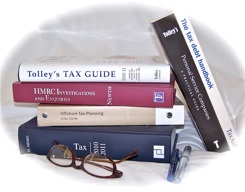
ctp
The PAYE system tries to collect the correct amount of tax and national insurance due from you over the course of a tax year - not just on your salary but on other items such as benefits in kind. To do this, HMRC have to try and decide in advance how much tax you should pay for the coming tax year.
The PAYE code is the key to getting your tax payments correct.
Firstly, HMRC will include any allowances that are due to you, such as the personal allowance. By putting the allowance in your PAYE code you will receive the correct tax free amount through the PAYE system.
On the PAYE code notice you might see that there are a number of deductions. These might be -
-
• an underpayment of tax from an earlier year
-
• a benefit in kind, such as a company car or medical benefit
-
• untaxed income from another source - such as bank interest or a state pension
By including these items and reducing your code, the PAYE system will collect the tax due on these items as well as on your salary.
It is important to check that the figures on your PAYE code are correct - otherwise you may pay too little or too much tax.
Remember, HMRC may not have all of the latest information - if you have changed company car or if you have changed employment with a different benefits in kind package.
Call your tax office if you have any doubts as to whether your code is correct. The telephone number is on the PAYE code notice.
You are entitled to make a claim to cover any costs which you are required to incur when working from home but which your employer does not pay. When related to your home, the tax allowance will be based on the additional cost you incurred by working at home.
To qualify as an allowable expense, the law says that an item of expenditure must be incurred 'wholly, exclusively and necessarily' in the performance of your duties as an employee. In short, you must be required by your employer to work at home - it’s not enough for you to do so just because it is convenient.
A deduction of up to £4.00 per week, or £18 per month for monthly paid employees, can be claimed. You don’t need to provide any records of the household expenses you’re claiming relief for. For amounts above £4.00 you will need supporting evidence to show that the amount you are claiming is no more than the additional household expenses you have actually incurred.
HMRC have more details on their website here.
You will often hear that there is a capital gains tax charge if you use your part of your home for your work. This is only true if you use part of your home exclusively for this purpose.
To avoid any capital gains tax problems you should not use one room solely as an office. It must also be used for other purposes e.g. children's games room, guest room or study. Provided your income tax claim reflects the dual use of the room there will be no capital gains tax charge.
Most redundancy settlements are made up of a number of elements. Some examples may be
* statutory redundancy payment
* pay in lieu of notice
* holiday pay
* ex gratia payment
* final bonus
Each of these elements - and any others - have their own rules for tax so there is no simple answer. Most employers are well aware of the rules for taxing these items so any tax deducted by an employer will normally be correct.
The taxation of some items also depends on whether you had a contractual entitlement to them under the terms of your employment contract. Generally, there is an exemption of up to £30,000 for items which are not contractual.
Taxation of redundancy packages is a complex issue and new rules came into force from April 6, 2018. You can contact us without obligation, if you would like advice on your situation.
An emergency code will be applied because your employer has to operate a PAYE code but hasn’t received a code notice from HMRC.
Revenue & Customs will need more information to issue the correct code -this may be because you have started your first job or that you did not give your new employer the P45 your previous employer gave you when you left your last job.
To have the code corrected you should contact HMRC’s office which handles your employer’s PAYE records.
What is my PAYE code for?

Employees
Sometimes I work at home. Can I claim expenses?
Is my redundancy settlement taxable?
What is an ‘emergency’ PAYE code?

More information.......






"Its true - hard work never killed anybody. But I figure; why take the chance?"
Ronald Reagan



Are you Struggling to Understand your PAYE code?
You are not alone.
The new format of PAYE code notices has caused a lot of confusion and misunderstanding. If you need help making sense of it all, get in touch.
Do you need help with filing a tax return?
We can complete and file a return for you with all tax calculations taken care of.
We can agree a fixed fee in advance.
Contact us for details




